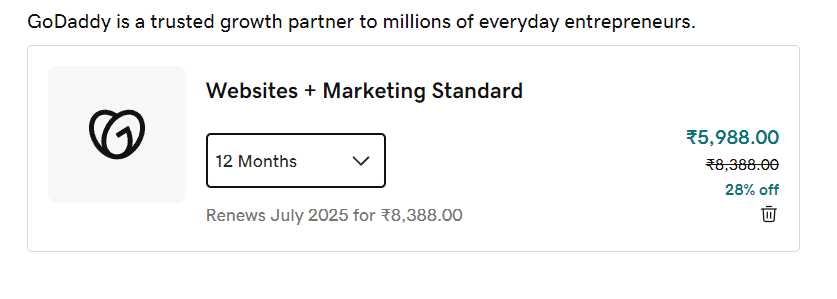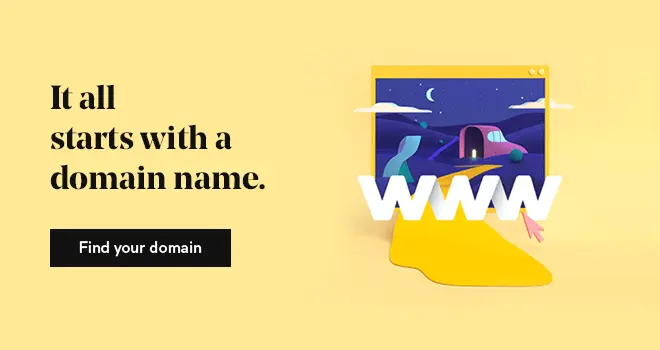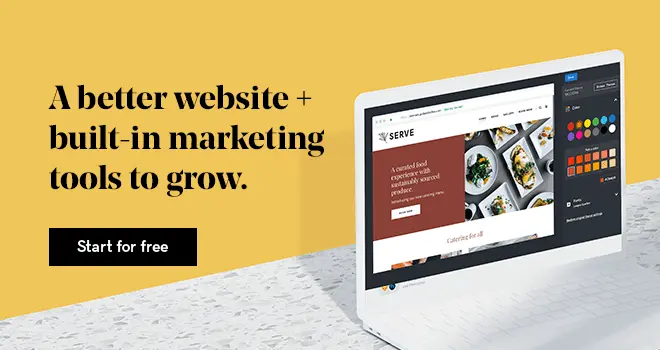Starting a business in India needn’t be overwhelming. I get it, there’s a lot to think about and as a new entrepreneur, there’s one thing on your mind: money. Can you afford it, will the business sustain you, how will you juggle your side hustle alongside your life commitments – maybe even another full-time job – exactly how much does it cost to start a business in India in 2026?
In India's economy, small businesses make up about 96% of the industrial production. Moreover, 42% of India's exports and 40% of the country's total industrial output come from these businesses.
Depending on the industry and the scope of operations, the average cost to start a small business in India ranges from 50,000 to 2 lakh Indian rupees (INR).
No doubt, there’s a lot to think about, but the more you think the more reasons you’ll find not to follow your dreams and that’s the last thing I want for you.
So, instead of overthinking, read through this comprehensive guide on starting a business in India, including a breakdown of startup costs and tips to manage costs at every step.
Fixed costs to start a business in India in 2026
The fixed costs of your startup will depend on the type of business. As a freelancer you can start up a business for $0, assuming you already own a PC and have access to Wi-Fi.
Businesses that need more involvement from operations, products or digital assets like websites may need to spend more.
The cost of your business will be unique, but you can use the guides below to determine how much it costs to start your dream business in 2025.
Domain, website or online store
The majority of startups need a website either to trade and receive enquiries online or for a presence in Google search and Google maps for local search.
That said, if you’re starting a service-based business you may be able to drum up business without a website by using social media platforms like LinkedIn.
To save the cost of a website, ecommerce stores can create shops on Etsy and pay minimal fees to upload products. Then, it’s just a commission on sales.
While free alternatives are great, at some point your business will likely grow to a point where you want a more robust online presence. And ecommerce merchants should be prepared to source a point-of-sale (POS) system or technology allowing them to accept online payments.
For entrepreneurs who need a website, start by sourcing your domain and hosting.
In general, non-premium domains cost between 1 to 2000 INR, depending on the deal you are getting and the number of years you decide to register the domain for. To explore prices buy a domain and search for your desired website URL.
Tips for managing the cost of domains
you can cut costs by exploring cheaper domain suffixes. Generally, but not always, .com or .in will be more expensive than .co, .io, .site, .shop. There are a lot of domain options so spend some time exploring suffixes and pricing.
Your website host is required to get your site on the internet and in front of customers. For this, you’ll need to get a web hosting plan.
Tips for managing the cost of web hosting
If you are looking to save some money from your web hosting plan, pay annually or for many years in advance.
Website design and development
For those who need to create a website you can use drag-and-drop editors. This is perfect if you really want to cut costs. You can build brochure websites or use the online store builder if you’re starting with ecommerce.
If you’re not willing to create the website yourself, then don’t fret because there are affordable website design services to guarantee a website you (and your customers) will love. I’ve known entrepreneurs who started with websites that are quite affordable.
Tips for managing the cost of website design and build: if the thought of designing and developing a website is overwhelming, but you want to save costs, commit a couple of hours to creating a website with GoDaddy. I promise it’s easy and you might surprise yourself.
While you’re creating a website, consider creating a logo to display on your web pages and other brand collateral. Services like GoDaddy Logo Maker are free and let you quickly snag this key piece of branding.
Legal costs to register a business
Legal costs vary hugely between types of business and the required legal cover. If you’ve figured out how to register for your business and you’re ready for the costs associated you can expect to pay upto 8,000 to 10,000 INR (for a Pvt. Ltd. Company). Of course, this depends on what you can do yourself. More savvy start-ups may be able to tackle some of the legal requirements, thus saving money.
Tips for managing legal costs: consider the essentials. As a new business owner, it can be tempting to cover your business from every angle, but this may not be required at the very beginning. Consider what’s a must-have to start up, then take note of what you can purchase later and when it’s needed.
Marketing
Marketing is one of the most flexible costs when starting a business. The options are endless.
At the cheapest, GoDaddy can support your business from Rs 7,000/month, but a more multi-channelled approach will cost Rs 41,000/month.
The good thing about marketing is that you can do a lot alone. If you’re happy to manage social media platforms to drum up business, you can do well without spending a penny. It is time-consuming so that time investment must be considered.
If you’re thinking about marketing your business with ads then you need to consider the cost of ads versus the benefit. Generally, it’s not useful to start with a budget that's too small simply because you won’t get the data you need to decipher a good ads campaign from a bad one. Don’t start an ads campaign until you’re ready to commit.
Tips for managing marketing costs: choose your marketing channels carefully, and do your research to find out which one is likely to have the biggest impact. It’s better to cover fewer channels well than many channels poorly. After all, you can always scale once you’ve nailed one platform.
Variable costs to start a business in India in 2026
Some prices are incredibly variable depending on location and the needs of the business. These items are listed below.
Physical location
The beauty of starting a business in India in 2026 is that many businesses won’t need a physical location, but if you’re opening a brick-and-mortar store or plan to work in an office, you’ll need to think about rent or mortgages.
Your business type and budget should be your primary considerations when selecting a location, as prime sites can demand exorbitant rentals. An ideal location for your company would be one with a population that has high buying power. For such a location, you can expect a minimum rent of 30,000 to 45,000 INR, plus maintenance and electricity.
The quantity of people visiting the place, or footfall, is another important consideration. Prices in high-end neighborhoods are expected to vary between 1,00,000 and 1,80,000 INR per month.
The following is a list of several prime sites in major Indian cities, along with an estimate of how much they can cost you:
Mumbai
Bandra-Kurla Complex and Lower Parel. The cost will be approximately between 180 INR per sq. ft. to 220 INR per sq. ft. per month.
Delhi NCR
Connaught Place, Noida (Sector 16, 18) and Gurugram Cyber City. The cost will start from 100 INR per sq. ft. per month and can reach to 300 INR per sq. ft. per month.
Bengaluru
MG Road and Indiranagar. The cost will be around 70 INR per sq. ft. per month to 150 INR per sq. ft. per month.
These rental ranges provide a rough estimate of what it would cost to rent a great location in these cities.
Products or inventory
One method to learn about new items and trends in the Indian market is to look at what's selling well there. Amazon reports that in 2023, Indians often purchase a wide variety of products, including smartwatches, apparel, shoes, health supplements, and cosmetics. It might be wise to target such areas if you are launching a company.
Here are a few things you may try; they are among the best-selling goods according to several industry trackers:
Clothing & apparel
Stylish and comfy attire is in high demand. As a seller, you may start your adventure with these high-profit items as there is a vast variety to provide and attract consumers.
Electronics
India is a major market for electronics, particularly televisions, laptops, tablets, and smartphones. They are in high demand since modern life is incomplete without them.
Home and kitchen appliances
One of the fastest-growing segments of the Indian eCommerce business is home décor and appliances.
Beauty and skincare products
In recent years, there has been a noticeable shift in consumer behavior toward searching for personal hygiene items and skin care. In addition, there has been a dramatic uptick in the demand for makeup products.
Toys
Toys that teach and amuse children are in high demand because parents value their children's development in all aspects. These days, more and more kids are seeing the educational value of STEM (Science, Technology, Engineering, and Mathematics) toys; the best way to keep kids interested and help them grow.
Fitness equipment
Fitness equipment has been in high demand due to the increasing popularity of health and fitness, particularly at-home exercises. Resistance bands, dumbbells multipurpose equipment are people’s go-to choices for muscle training and other full-body exercises.
Baby products
In 2022, the value of the Indian market for baby care goods was USD 12.73 billion. Most parents shop for diapers, wipes, strollers, baby powder, hair products, and more in the children's and infants' section.
If you need to buy and hold stock, you’ll need to outlay an initial investment upfront. The cost will vary on the units required. You can manage these costs by thinking carefully about what you’re likely to sell. Another consideration is what you can sell if you buy stock in bulk.
Here are more tips to help you manage product and inventory costs. You should ask suppliers about their minimum order quantity (MOQ) and how costs vary on quantity. Also, consider drop shipping so you don’t have to outlay any costs at all.
Staff
Staff costs depend on seniority and location. In India, the pay scale for unskilled labor falls between 9,000 to 12,000 INR. On the other hand, hiring skilled workers can cost you an average of 14,000 to 15,000 INR and reach a maximum of 24,000 to 25,000 INR.
These expenses may rise regardless of the industry, for instance in wholesale operations, staff costs can be higher than usual.
Tips for managing staffing costs: businesses trading online can outsource work to talented new freelancers or over-pay freelancers in different parts of the world. You can also take on more work yourself or turn to software and AI to support your business.
Taxes
Beyond the initial registration, startups need to consider tax. The rules surrounding tax vary so you must check the rules within the country in which your business is registered.
Paying your taxes usually means putting a percentage of your income aside to cover the costs, monitoring and recording your expenses to account correctly for tax write-offs or hiring an accountant to manage taxes for you.
Tips for managing tax costs: the more self-efficient you are, the less you need to pay an accountant. Many small businesses can manage the early tax returns alone, but a growing business will likely need an accountant eventually. Manage the costs by putting money aside regularly.
On-going expenses
As a small business you’re likely to have ongoing expenses. You may not start with them but over time you’ll likely invest in subscriptions or software. Or, you might have shipping to consider for e-commerce. Costs will vary based on your requirements.
Tips for managing ongoing expenses: on-going expenses can creep up on business owners so be mindful of monthly subscriptions and the well-intentioned software you purchased. If you’re not using it, you’re throwing away money.
Unexpected costs
No matter what, any business is likely to be hit with an unexpected cost, eventually. Prepare for the unexpected by holding a budget to get you out of an emergency situation. Unexpected costs could include your sickness, the need to hire a consultant to solve a problem fast or if you’re in a brick-and-mortar store something could go wrong within the building.
How to fund your startup or small business
Getting funding for your new business is likely on your mind. Here are some common ways to earn funding for your start up.
Personal investment
Funding your business on your own can be a safe option. It removes the stress of meeting investor expectations and it can feel really good to know you build your new business with your own means.
Personal investment may require you to save for a few years before you get started, but freedom from other stakeholders can be highly desirable in the early stages.
Borrowing money through contacts
You can opt to borrow money from your personal contacts, friends and family, for example. If you choose to go down this route it’s really important to treat it as you would as a formal investment: draw up contracts, separate personal and businesses conversations. Be very clear on what the contract is.
Loans
Securing loans from banks is an option for funding. Generally, banks provide calculators on their websites so you can gage what you might be able to borrow. Be aware that it isn’t easy to get accepted for a bank loan, 80 - 90% of startups fail so banks are naturally careful who they lend money to.
Create a budget for your first year
Let’s take a look at various cost summaries for businesses with varying needs.
Freelance business
Your freelance service-based business cost summary is one of the cheapest businesses to start, it might look a bit like this:
| Expense | Cost | Notes |
| Laptop | INR0 | freelancers can start with any laptop that they have access to. |
| Internet | INR0 | work from home and freelancers don’t need to worry about additional costs for wi-fi. |
| Social media | INR0 | Organic posts don’t cost anything and can generate leads and clients. |
| Total: | INR0 |
Service-based business
For those starting a service-based business and desire a more professional appeal can kick off a new business venture with a functioning site.
Here’s what the cost summary can look like:
| Expense | Cost | Notes |
| Domain | INR 169 | Use suffixes like .site to reach that INR 169 cost |
| Create a website | INR 0 | Get creative and build your own site with GoDaddy. |
| Website design services | INR 5000 and up | Optionally: Choose website design services. |
| Web hosting | INR 219/mo | Host your website for 36 months to get 63% off, it will cost just INR 79/mo. |
Marketing costs for the first year
If you choose to work with a service provider like GoDaddy your digital marketing services can be covered for as low as INR 499/month and INR 5988/yr after 28% OFF.

Other marketplace prices
| SEO and website updates | From INR 10,000/month |
| SEO, website updates and social media, content, emails reputation management, brand guides and a professional photoshoot | From INR 40,000/month |
| Minimal total: | INR 50,000/month* |
Businesses you can start with a small budget
The digital world has opened a world of opportunity when it comes to starting a business for free or with a small budget.
Assuming you’ve got a PC, wi-fi and a desire to work or use social media to generate leads, you can start any of the following small business ideas, for free:
- Freelancing in digital services like writing, SEO, PPC, social media management or email marketing.
- Freelancing on platforms like Upwork or Fiverr.
- Affiliate marketing through social media platforms like Facebook.
- Consulting in a skill you already have (or can learn for free online).
Local services you can start with little to no start-up costs:
- Dog walking
- Babysitting
- Homesitting
- Handyman
- Tutoring
Some businesses require a small budget to start, for example:
- Selling digital downloads on Etsy. You’ll pay a small fee to upload products, but then nothing until you make your first sale where you pay a percentage to Etsy.
- Dropshipping
- Selling on Amazon.
- Print (assuming you’re doing the printing)
Related: Check out our guide on small business ideas.
Closing thoughts on starting a business in 2026
There are a lot of resources and technology that can boost the success of your business. For example, learning how to write up a business plan (with help from things like ChatGPT) can easily jump-start your business path in the right direction. You can also check our simple business plan template.
And while there might be expenses associated with starting a business, don’t forget the financial rewards that come with a successful venture. Keep that momentum going and make 2026 the year you founded a business to be proud of.
*Pricing data valid on July 2024. All prices listed are subject to change.
Editor's Note: This article was originally written by Art Matori on Jan 18, 2024 and adapted for this blog. It was first published on August 8, 2024 and updated on January 3, 2025 and November 5, 2025.









